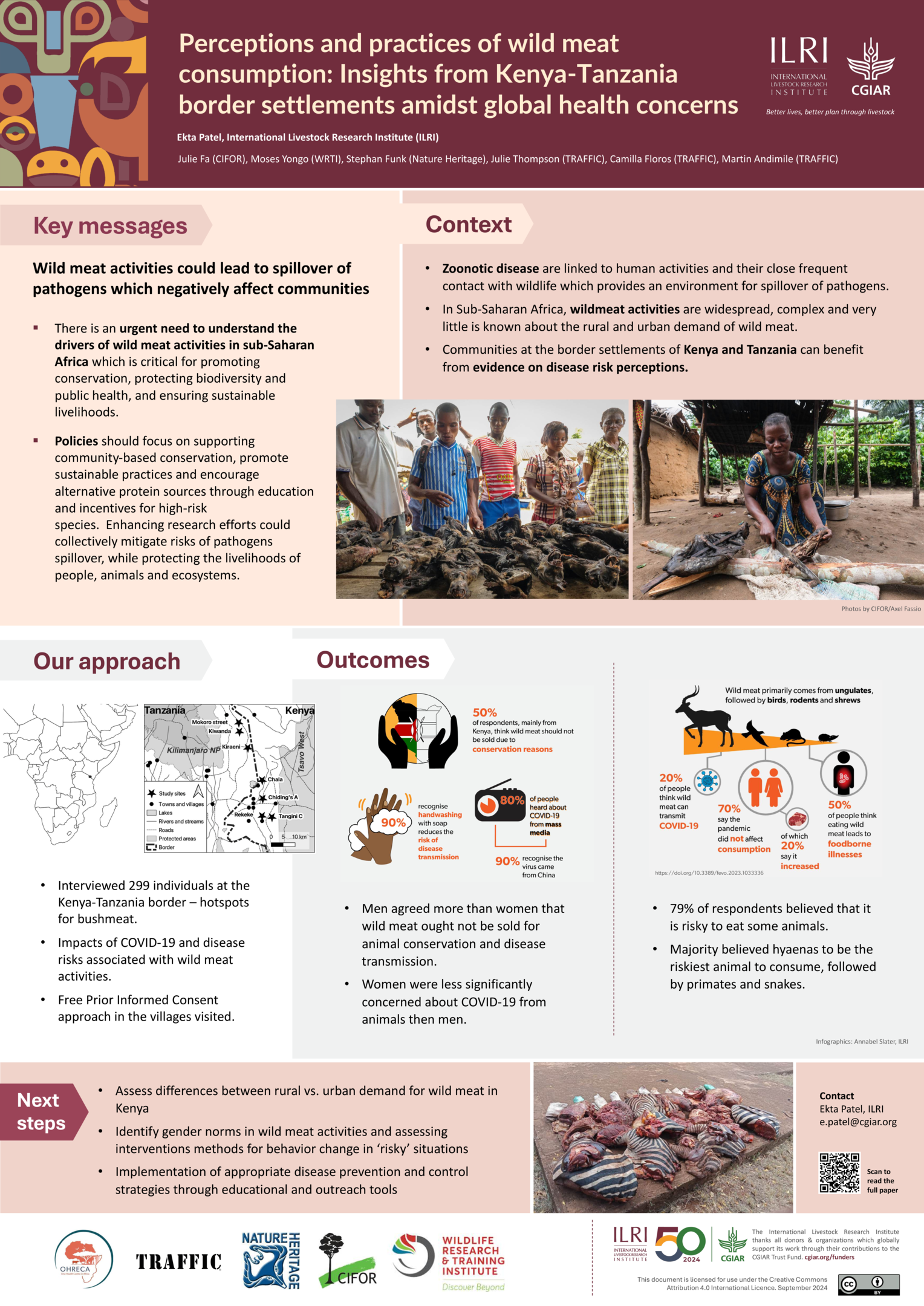
Description
Wild meat hunting and trade across sub-Saharan Africa is extensive and complex, often
linked to disease outbreaks that elevate pandemic risks for zoonotic disease transmission
from wildlife to humans. This risk is facilitated by direct contact during hunting and handling.
Increased human-wildlife interactions due to encroachment into wildlife habitat,
unregulated trade and lack of sanitary controls intensify these risks. Additionally,
conservation pressures and cultural practices complicate mitigation efforts. To reduce the
risks associated with wild meat value chains, effective strategies should include enhanced
disease surveillance, regulation of wild meat markets, improved handling practices and the
provision of sustainable alternatives for communities dependent on wild meat. Additionally,
targeted human behaviour change interventions are crucial for reducing zoonotic disease
transmission and conservation of species. These comprehensive measures are essential for
mitigating the complex health and environmental challenges posed by the wild meat trade.
Comments
Add new comment